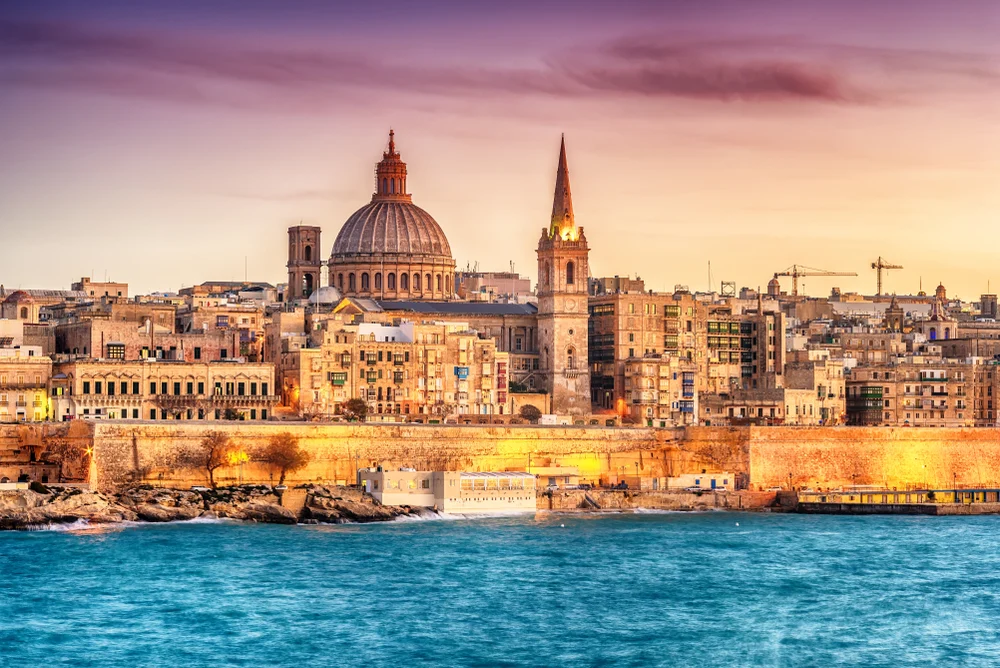World Smallest Capital City Of The World, Valletta!!!!!!

Welcome to Valletta, Malta’s proud capital and a city that feels like a living museum. Picture narrow cobbled streets buzzing with life, golden-stone bastions catching the Mediterranean sun, and centuries-old buildings standing tall with stories to tell. Valletta is more than just a destination—it’s an experience.
Let’s take you on a journey through this UNESCO World Heritage Site, step-by-step, so you don’t miss a beat.
1. A City Built by Knights
Valletta was founded in the 16th century, right after the legendary Great Siege of Malta in 1565. Named after Jean Parisot de la Valette, the Grand Master of the Order of the Knights of St John, Valletta was designed to be a fortress city—strong, majestic, and sacred. Built on Mount Sceberras, a rocky peninsula between Grand Harbour and Marsamxett Harbour, its strategic location helped shape the destiny of the Mediterranean.
Wander its stone streets and you’ll feel that medieval energy—this is a city forged in courage and devotion.
2. A European Capital of Culture
In 2018, Valletta was crowned the European Capital of Culture, and rightfully so. It’s a vibrant hub of art, history, music, and Maltese heritage. Even though it’s Malta’s smallest city, Valletta overflows with character and culture.
From classic operas to contemporary art exhibitions, the city blends the old and new in style. It’s not just history—it’s history still alive.
3. St John’s Co-Cathedral – A Masterpiece Within Walls
Start your adventure at the heart of Valletta: St John’s Co-Cathedral. Built between 1573 and 1578 by architect Gerolamo Cassar, it was originally a conventual church for the Knights of St John. Outside, it’s impressively simple. But step inside, and you’re transported into a world of Baroque splendor.
Gilded ceilings, intricate marble floors, and masterful art line the walls—including a must-see Caravaggio masterpiece, “The Beheading of Saint John the Baptist.” This cathedral alone is reason enough to visit Valletta.

4. The Grand Master’s Palace – History’s Political Heart
Next, walk over to The Palace of the Grand Masters. Built in 1574, it now serves as the official residence of the President of Malta and houses the House of Representatives. Inside, you’ll find the Hospitallers’ Armoury, a treasure trove of ancient weapons and armor.
Whether you’re into politics or medieval military history, this building connects Malta’s powerful past with its present.
5. The Auberges – Homes of the Knights
Valletta was once home to knights from across Europe, and they lived in grand residences called auberges, named after their country of origin. Some key ones still stand proudly:
- Auberge d’Aragon (1571): Now the Ministry of Finance.
- Auberge de Provence (1571): Today, it’s the National Archaeology Museum.
- Auberge de Castille (1573): This houses the Office of the Prime Minister.
Each building, with its baroque and Mannerist design, offers a glimpse into how the elite lived during the city’s early days.
6. Barrakka Gardens – Breathtaking Views Await
Need a break? Head to the Upper Barrakka Gardens, the city’s most famous viewpoint. From here, soak in the stunning panoramic views of the Three Cities and the Grand Harbour. The gardens are peaceful and elegant, with fountains, statues, and shaded benches perfect for relaxing.
Make sure to catch the Saluting Battery cannon fire at noon—a centuries-old tradition still performed daily.

7. Valletta’s Churches – A City of Faith
With over 25 churches in less than a square kilometer, Valletta truly is a city of churches. Besides St John’s Co-Cathedral, don’t miss:
- Church of Our Lady of Victory – Marks the city’s foundation.
- St. Paul’s Shipwreck Church – Home to sacred relics.
- Church of St. Catherine of Italy – A unique octagonal gem.
Each church reflects Malta’s deep-rooted Catholic faith and offers a quiet retreat from the bustle of the streets.
8. The Manoel Theatre – Europe’s Oldest
Fancy some culture? The Manoel Theatre, built in 1731, is one of Europe’s oldest functioning theatres. Whether you catch a live show or take a guided tour, its ornate design and historic charm make it a favorite among visitors.
The golden balconies and classic ambiance create an atmosphere unlike anywhere else—a truly timeless experience.
9. Museums & Libraries – Knowledge Hubs of Malta
Valletta is home to several significant institutions:
- National Archaeology Museum – Housed in Auberge de Provence, this museum showcases artifacts from Malta’s Neolithic period.
- National Library of Malta – Built in the late 1700s, this is a haven for history lovers.
Every corner of Valletta speaks to its scholarly spirit and artistic soul.
10. World War II & British Legacy
Valletta isn’t just about knights and churches. It played a major role in modern history, too. During World War II, the city endured heavy bombing, but never broke. In 1943, the Italian fleet surrendered here, marking a critical Allied victory.
From 1800 to 1964, Valletta was a strategic British military base, and echoes of colonial architecture still dot the city.
11. Modern Valletta – Culture, Cuisine, and Charm
Today, Valletta is a lively capital where the past meets the present. It’s a commercial and administrative hub, but not industrial. Instead, the city thrives on tourism, creativity, and Maltese hospitality.
You’ll find:
- Chic cafés and fine dining restaurants
- Boutique shops and artisan markets
- Art galleries and outdoor festivals
Whether you’re sipping coffee on Republic Street or enjoying seafood near the harbor, Valletta balances culture and comfort beautifully.
12. Final Thoughts – A Capital Like No Other
Valletta may be small in size, but it offers a grand experience. Every step reveals a new story—from knightly quests and baroque brilliance to wartime bravery and modern charm. Whether you’re admiring Caravaggio, strolling through Barrakka Gardens, or watching the sunset over the harbour, you’ll quickly see why Valletta captures the hearts of so many.
So yes, fancy a stroll through the capital? You’ll find more than just sights. You’ll find soul.

